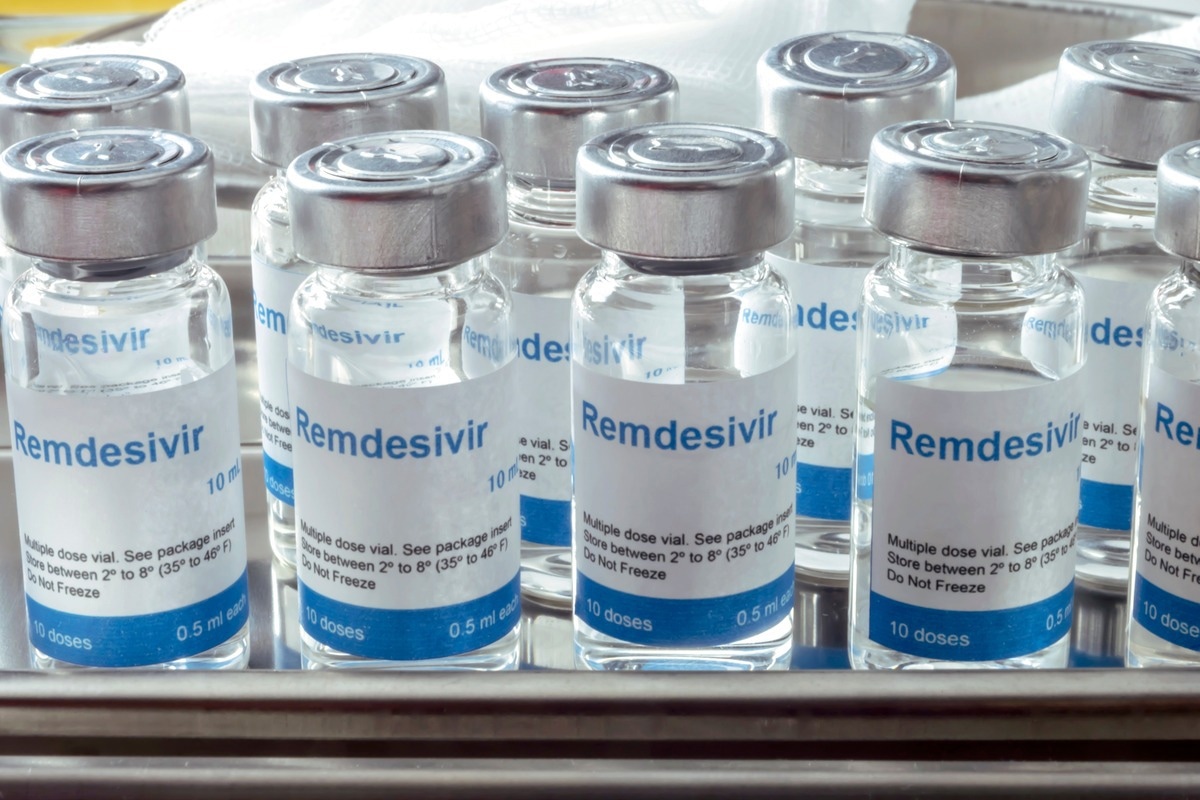Scientists have devised numerous pharmaceutical and non-pharmaceutical methods to guard people from extreme acute respiratory syndrome coronavirus-2 (SARS-CoV-2), the causal agent of the continued coronavirus illness 2019 (COVID-19) pandemic.

Regardless of their efforts to include the illness, the emergence of novel SARS-CoV-2 variants throughout the globe has extended the pandemic.
Background
In response to a latest meta-analysis, that included roughly 12,000 strong organ transplant (SOT) recipients, a humoral response induced through COVID-19 vaccination was considerably decreased within the examine group, in comparison with immunocompetent hosts. This discovering signifies that though vaccination has lowered the incidence of extreme COVID-19 illness within the majority of immunocompetent hosts, it doesn’t considerably shield SOT recipients from extreme an infection, which can result in demise.
Remdesivir, a prodrug of the nucleoside analog GS-441524, successfully inhibits the operate of RNA-dependent RNA polymerase (RdRps) in a number of RNA viruses. It was the primary drug that was accredited by the U.S Meals and Drug Administration (FDA) for the remedy of COVID-19.
Not too long ago, researchers reported a case of remdesivir resistance in a affected person with persistent SARS-CoV-2 an infection. This affected person was additionally present process remedy with rituximab and bendamustine for lymphoma. Only a few research deal with the problem of resistance to COVID-19 therapeutics throughout remedy.
A brand new examine
A brand new examine presently posted to the Research Square* preprint server has reported two renal transplant instances, through which people, after being uncovered to remdesivir, developed a resistance to the drug. This occurred owing to a de novo V792I RNA-dependent RNA polymerase (RdRp) mutation.
The primary affected person who obtained a renal transplant was 60 years of age and had a historical past of diabetes, vascular illness, and hypertension. The affected person underwent a deceased donor kidney transplant (DDKT) after reaching end-stage renal illness (ESRD). Scientists reported that earlier than the transplant, the affected person obtained two doses of the COVID-19 vaccine (BNT162b2). Earlier than the transplant, the affected person was subjected to immunosuppressants, comparable to basiliximab and methylprednisolone.
Clinicians noticed an elevated stage of anti-A titer within the blood kind B recipient and because of this, they rapidly shift the affected person from basiliximab to anti-thymocyte globulin (ATG). Six months post-transplant and after a number of modifications within the remedy course of, the affected person examined SARS-CoV-2 optimistic with a cycle threshold (Ct) of 27.1.
Genomic sequencing confirmed that the affected person was contaminated by the Omicron variant. This affected person was handled with a five-day course of remdesivir and confirmed enchancment in signs. Nevertheless, 24 days after the primary analysis of COVID-19 illness, the affected person required readmission with worsening COVID-19 symptoms and confirmed a Ct of 24.4. After one other course of remdesivir (five-day) and dexamethasone (ten-day), de novo RdRp mutation V792I (G15814A) was noticed.
This affected person was additionally identified with Epstein Barr virus (EBV) – optimistic diffuse massive B-cell lymphoma (DLBCL), in keeping with the monomorphic post-transplant lymphoproliferative dysfunction (PTLD) and, thereby, chemotherapy was initiated. The affected person examined SARS-CoV-2 optimistic after 110 days after the primary COVID-19 analysis with Ct of twenty-two.6, and one other de novo synonymous mutation in RdRp at K890 was recognized.
The second affected person who obtained a renal transplant was 50 years of age with a historical past of diabetes, splenectomy, and vascular illness. Just like the primary affected person, the second affected person additionally obtained two doses of the COVID-19 vaccine (mRNA-1273). This affected person was additionally subjected to immunosuppressants (methylprednisolone and ATG) and numerous different medicine.
The second affected person examined SARS-CoV-2 optimistic fourteen months after the transplant and was handled with a course of remdesivir (three-day) and baricitinib (four-day). Clinicians recognized a de novo V792I (G15814A) mutation in RdRp. The affected person responded to the remedy effectively and was quickly discharged from the hospital. Nevertheless, after 18 days of COVID-19 analysis, he was re-admitted owing to worsening SARS-CoV-2 signs. This time the Ct rating was discovered to be 17.4 and de novo mutations within the nsp14 exonuclease and spike protein area had been noticed.
Implications
The present examine confirmed that regardless of being vaccinated, each sufferers suffered COVID-19 an infection for a chronic time. Ineffective immune clearance is accountable for persistent viral replication in immunocompromised hosts. This situation additionally enhances the possibilities of viral mutation.
When renal transplant sufferers, contaminated with SARS-CoV-2 an infection, had been uncovered to remdesivir, owing to an intensive immune deficit, an unchecked viral replication occurred for a chronic interval. Each the sufferers independently developed a de novo V792I substitution in ORF1ab, the open studying body encoding nsp12, which restricted the efficacy of remdesivir in these sufferers.
On this examine, the authors highlighted the chance of immune escape in immunocompromised hosts. Moreover, they reported that remdesivir resistance occurred on account of viral mutations in these hosts. Researchers said that well timed identification, remedy, and restriction of the unfold of the mutated virus, are vital elements in containing the COVID-19 pandemic.
*Essential discover
Analysis Sq. publishes preliminary scientific stories that aren’t peer-reviewed and, due to this fact, shouldn’t be considered conclusive, information medical apply/health-related conduct, or handled as established data.





